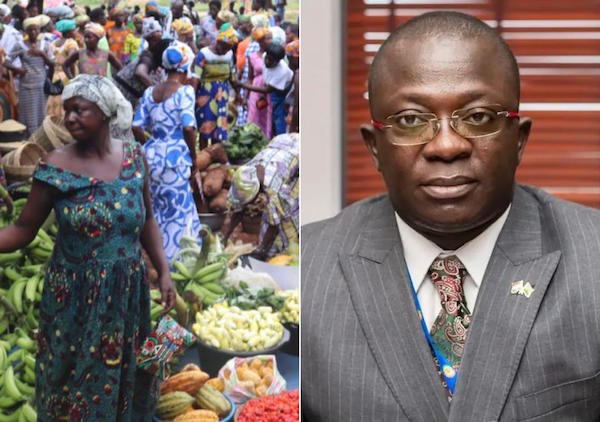News of an impending food crisis predicted to hit Ghana has sparked fear among Ghanaians while government bans grain export to respond to drought-induced food Insecurity
Ghana is taking decisive action to mitigate the threat of a severe food shortage caused by prolonged drought conditions. The government has imposed a temporary ban on the export of critical grains, including rice, maize, and soybeans, in a bid to secure the nation’s food supply. This move is part of a broader emergency response aimed at stabilizing the agricultural sector, which is facing unprecedented challenges due to adverse weather patterns.
Food Crisis in Ghana: Report by JoyNews
Over the past two months, persistent drought has devastated key agricultural regions in Ghana, particularly in the northern part of the country, which accounts for approximately 62% of the nation’s grain production. According to Agriculture Minister Bryan Acheampong, nearly half of the 1.8 million hectares of farmland in these regions are already affected, putting at risk the livelihoods of hundreds of thousands of farmers. The situation is dire, with significant losses already incurred and the potential for further crop failures looming.
Government’s Strategy to Avert Impending Food Crisis in Ghana
In light of these challenges, the Ghanaian government has prioritized domestic food security by restricting the export of essential grains. The Minister emphasized the importance of this ban, noting that it is crucial to ensuring that sufficient food supplies remain available within the country. The government is also taking steps to purchase existing grain stocks from farmers to mitigate the impact of the export ban, while also planning significant imports to bolster national reserves.
To further support the agricultural sector, the government is rolling out a comprehensive relief package. This includes direct financial assistance to affected farmers, with cash transfers designed to provide immediate support to those who have lost their crops. The government is also importing large quantities of maize, rice, and poultry feed to ensure that both the food supply and the poultry industry remain stable during this crisis.
To prevent a recurrence of this disaster, we are enhancing our collaboration with the Ghana Meteorological Agency,” the Minister said. “Through the Food System Resilience Project, we aim to provide accurate forecasts and advisories to better prepare our farmers for future climatic challenges. Minister of Finance assured to avert challenges.


